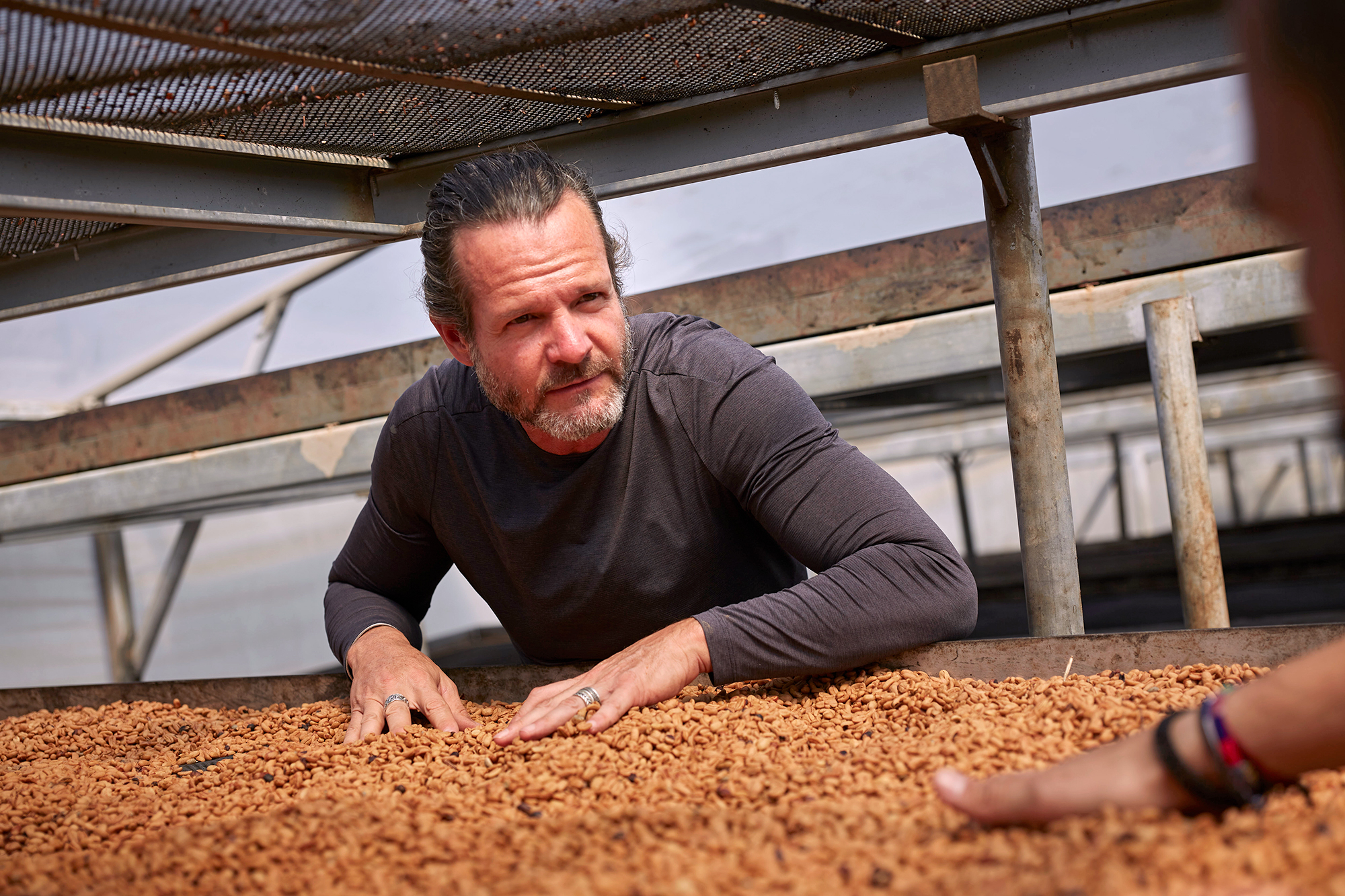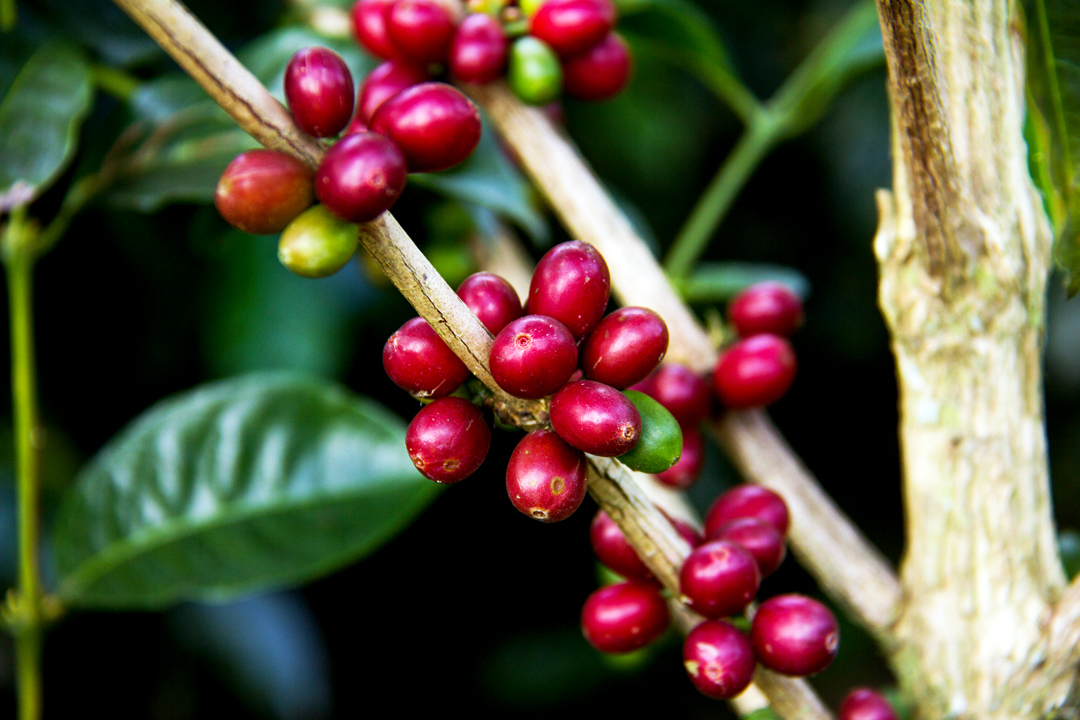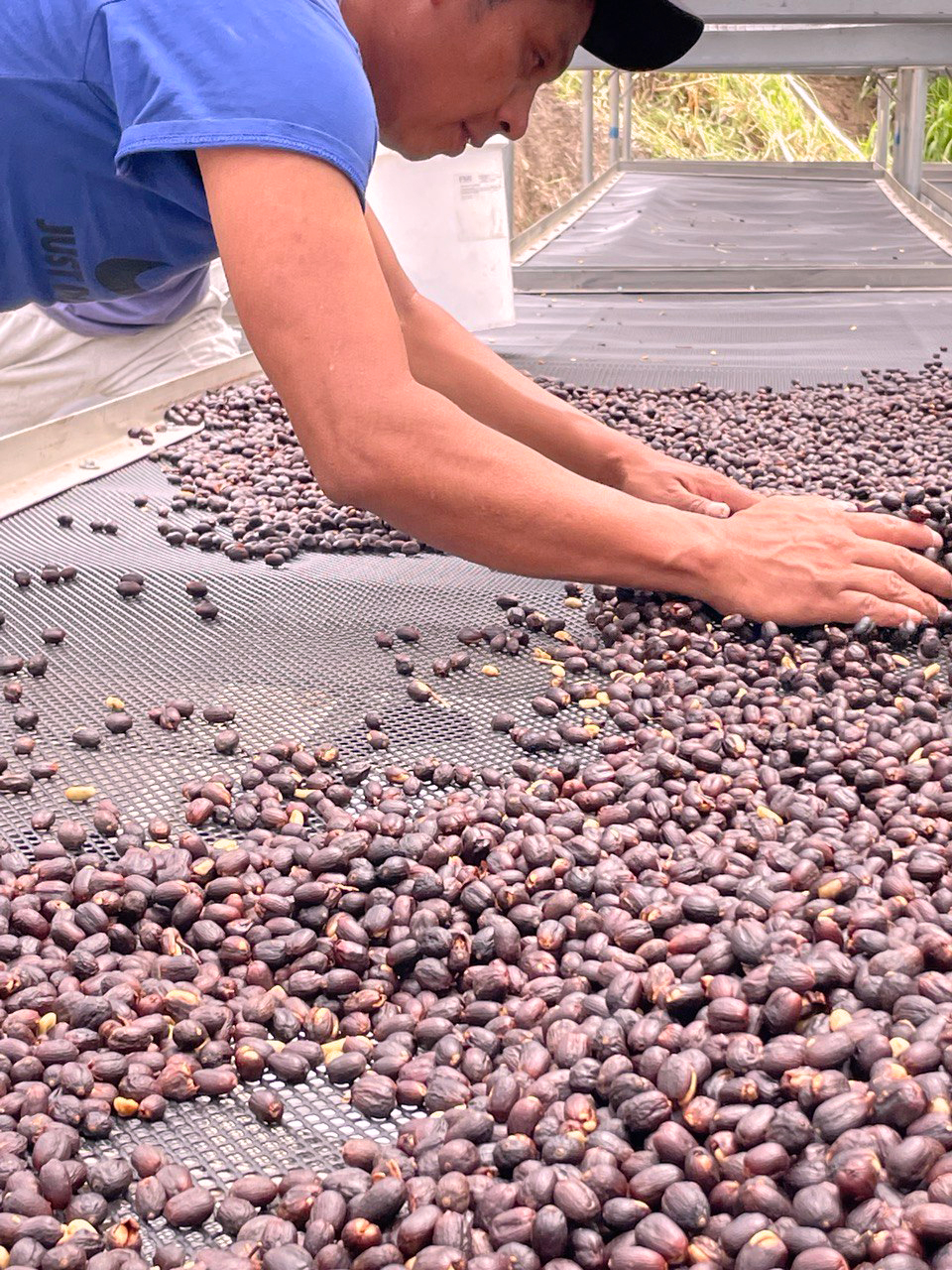

















Panama
100g
Cup Notes: Jasmine, Raspberry, Passion Fruit, Pineapple, Lime Zest
This Geisha combines extended natural carbonic maceration with a refined washed finish, highlighting lifted acidity, complex fruit layers, and the signature elegance of Finca Deborah.
Suggested for espresso and filter
when we roast
We freshly roast to order all coffees on Monday, Wednesday and Friday (excluding national holidays), and ship the same day! Cut-off time is 11:59pm (UTC+1) of the day before the roast day. *We only ship whole beans*
Since establishing his first farm, the acclaimed Finca Deborah, in the early 2000s, Jamison Savage has provided a model for biodynamic farming practices and become a pioneer of intentional, science-based alternative processing approaches. Known throughout the specialty coffee world for his innovative methods, Jamison uses advanced processing techniques and environmentally respectful farming practices to bring out a coffee’s finest sensory nuances. This dedication has earned him widespread admiration and respect from coffee aficionados, especially from top-tier coffee competitors.
Finca Deborah’s mission is to cultivate, process, and deliver only the highest-quality coffee. Situated at over 1,900 masl and nestled deep in the Volcán mountains, Finca Deborah is enveloped in dense clouds for much of the year. Here, within a pristine natural environment where rare plant and animal species thrive, Geisha coffee flourishes under the protection of the lush rainforest canopy. Meticulous hand-picking of only the ripest cherries ensures that Finca Deborah Geisha consistently stands among the world's finest coffees.

Panama Geisha, including the Green Tip Geisha variety, is a rare, complex coffee, beloved for its sweet and floral notes and citrus highlights. Since its debut win at the Best of Panama auction in 2004, this variety has captivated specialty coffee enthusiasts worldwide with its delicacy, complexity, and clarity of flavours.
Producers like Jamison Savage leverage both traditional methods and innovative processes, such as natural fermentation with yeast inoculation, to bring out an extensive range of flavour profiles in the coffees. These techniques allow Panama Geisha’s intrinsic qualities to shine, enhancing the diversity of flavours while maintaining its unique terroir and varietal characteristics.

Carbonic Maceration (CM) has been used in the wine industry for decades, but its application to coffee is relatively recent. In 2015, Jamison Savage was among the pioneers to bring this method to coffee. Over the past five years, he has refined a range of CM techniques, earning recognition as a leader in carbonic maceration coffee processing. His coffees have won numerous awards in both national and international Barista and Brewer’s Cup competitions.
The Aril process begins with harvesting perfectly ripe Geisha cherries from Jamison’s Iris Estate, with BRIX readings between 21 and 24. After the initial harvest, cherries undergo a meticulous second selection to ensure only the highest quality fruit moves forward. Selected cherries are then placed in hermetically sealed CO2-infused tanks for over 100 hours. Throughout this period, key variables such as pH, temperature, and CO2 levels are constantly monitored, alongside ambient conditions, and periodic infusions are applied to maintain a controlled and consistent fermentation.
After the extended CM, the cherries are removed, milled, and depulped, then thoroughly rinsed in fresh water. They are laid out to dry on a three-tiered shaded African bed system designed to protect the delicate beans from direct sunlight, UV exposure, and heat, which could otherwise crack the parchment and compromise quality. Drying houses maintain precise control over temperature, humidity, and airflow to ensure uniform and stable drying.
Once the beans reach an ideal moisture content of around 11%, they are bagged in GrainPro and stored in a cool, stable bodega. This resting period, or “reposo,” is essential for quality control, allowing the beans to settle, equalize moisture, and further develop their flavour. Following this, the coffee is hulled, sorted by size, density, colour, and shape, and finally lightly vacuum-sealed for export to discerning customers worldwide.
